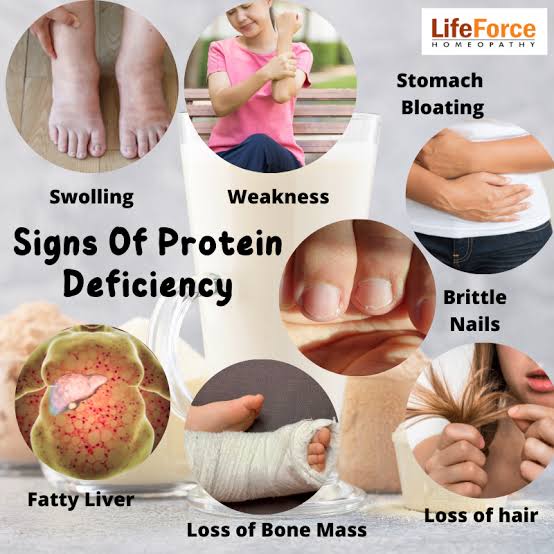
Protein are substances that are part of cells, tissues, and organs throughout the body, and according to many researches and studies related to protein deficiency, protein deficiency is common among people who live in developing countries, those who live in poor communities in developed countries, and the elderly who lack protein. Nutritious food. As for the results of protein deficiency in the body, it also affects people who are born with a genetic disorder to produce certain proteins, and people with diseases that make them lose their appetite and suffer from muscle breakdown.
Protein deficiency in the body
The human body needs to consume a sufficient amount of protein daily, and the lack of adequate intake of protein may cause many health complications resulting from low protein intake, therefore, insufficient protein may cause various health problems such as poor mental health, wasting and mental decline, weakness Muscle tissue and immune system weakness, abnormal blood clotting, and a person with protein deficiency is at risk of developing vein thrombosis that occurs in the deep veins of the extremities.
Thus, protein is a macronutrient that is essential for the development, maintenance and repair of all body cells, so neglecting to eat enough protein can have various negative symptoms and cause many diseases caused by low protein intake.
Diseases of protein deficiency in the body Kwashiorkor disease
It is a type of protein deficiency that affects young people and that results from malnutrition, and this disease is characterized by having many manifestations that include enlargement of the liver, swelling of the diaphragm and swelling of the feet, skin pigmentation, skin aggravation, hair loss and tooth loss in addition to severe general weakness .
Marasmus disease
Marasmus is a type of protein deficiency that can cause general weakness, muscle wasting, decreased rate of muscle and tissue erosion, decreased levels of vitality and decreased weight, in addition to that it makes those who suffer from it more vulnerable to infections in addition to that it causes poor mental and psychological health, as well It can cause increased stress and anxiety, especially in young people
Dropsy disease
Not getting enough protein can cause dropsy, which is a disease that occurs as a result of a lack of protein, and causes swelling in different areas of the body, such as the feet, hands, and stomach, and this happens as a result of a lot of fluid gathering under the skin, which causes swelling and discoloration. Stained skin, high blood pressure, and stiff joints.
failure of bodily functions
Protein is required for the growth and maintenance of the functions of the body’s organs, and therefore a lack of protein can cause a halt in the functions of the various organs of the body and the shrinkage of muscle tissue that occurs when the body does not get enough protein in the diet.
Weakened immune system
Protein is essential for creating antibodies that raise the efficiency of the immune system, and therefore when a sufficient amount of protein is not consumed, the body will not be able to produce these antibodies, and this makes the body more susceptible to disease, as the human body will fight fierce battles in order to eliminate any A type of disease, so the lack of protein in food may cause various health problems such as poor mental, mental and muscular health, and a weak immune system.






